Popular Articles
- Avistate Supplement Facts
- Super Beta Prostate - Is it a Scam?
- Prostavar - Review of Ingredients - Is it a Scam?
- Prostate Diet - 4 Foods to Avoid
- Having Difficulty Urinating?
- 10 Natural Prostate Treatments
- Swollen Prostate Gland
- Bell Ezee Flow Tea - Review
- Vigamaxx Reviews - Is it a Scam?
- Prostate Health Supplements
- More Articles ...
 Prostate Health RemediesIn This Article
Prostate problems are quite common in elderly men and it mostly involves the enlargement of the prostate. The conventional drugs routinely prescribed to treat prostate problems are not without their side effects, some of these even as serious as the conditions to be treated. On the other hand, the natural remedies used to treat prostate problems in traditional medicine are safer and better tolerated. This article discusses the most important and effective of these natural remedies.
The prostate is a small walnut-sized male sex organ. Its growth accelerates as men grow older, therefore, there is an increased risk of prostate problems in older men compared to younger men. Prostate problems usually involve the enlargement of the prostate. The three major disorders of the prostate are listed in the table below. There are different factors that can cause the prostate to enlarge besides aging. Some of these include bacterial infection of the gland, prolonged stimulation by androgen hormones and oxidative damage to the tissues of the gland. Because the urethra passes through the prostate on its way to the penis, the enlargement of the prostate can interfere with urination. When the size of the prostate increases either through local inflammation of runaway cell growth, the organ presses on the urethra, constricting it and restricting urine flow. This makes urination difficult and painful as well as increase the urge to urinate even while the bladder is not properly voided.
Lifestyle Modifications to Relieve Urinary DifficultiesThere are lifestyle modifications that can be adopted to help control the symptoms of enlarged prostates especially the urinary ones. To relieve urinary difficulties, experts recommend that you should:
Treating Prostate ProblemsAlthough prostate problems are quite common in men over the age of 50, regular screening is not usually recommended. Physicians prefer to treat symptoms as they appear while monitoring the levels of PSA (prostate-specific antigen naturally secreted in the prostate). However, the standard medications prescribed for prostate problems are not without their side effects. Common side effects of these drugs include erectile dysfunction and retrograde ejaculation. Where drugs fail, doctors recommend invasive therapies to help reduce the size of the prostate or open up the urethra. When all else fails, prostate surgery is recommended. Due to the shortcomings of prostate drugs and surgical procedures, many patients now seriously consider natural remedies for their prostate problems. Besides herbs and other plant-derived phytochemicals, natural dietary supplements such as antioxidant vitamins and minerals can also be used to improve prostate health. Commonly used supplements for the prostate include beta-carotene, vitamins C, D, E, and K as well as selenium. Besides these natural supplements, this article discusses natural remedies (mostly plant-derived) that are proven to provide similar (or superior) benefits as prostate medications. Natural Remedies for Improving Prostate HealthSaw Palmetto
Therefore, it is most commonly used as a hair loss remedy and for treating prostate enlargement. The herbal extract is taken from the liposterolic fraction of the berries of saw palmetto. This fraction contains bioactive phytosterols such as beta-sitosterol. Specifically, the bioactive phytochemicals in saw palmetto prevent the conversion of testosterone to dihydrotestosterone (DHT) by blocking 5-alpha reductase, the enzyme involved. DHT is the major androgen hormone responsible for prostate overstimulation and enlargement. In addition, these phytochemicals compete with androgens for the androgen receptors on prostate cells. By preventing androgen hormones, especially DHT, from binding to these receptors, saw palmetto significantly reduces the effects of the hormones on the gland. Lastly, saw palmetto extract can help relieve urinary difficulties caused by prostate enlargement. By acting on the smooth muscles of the urethra, saw palmetto can help void the bladder and reduce the urge and frequency of urination. For all these benefits, saw palmetto extract causes very few side effects, mostly mild gastrointestinal discomforts. However, it should not be combined with oral contraceptives (because it affects the balance of sex hormones), blood thinners and NSAIDs (non-steroidal anti-inflammatory drugs like aspirin and ibuprofen). Stinging Nettle
Besides these two groups of phytochemicals, stinging nettle also contains flavonoids, lignans, and lectins that also contribute to its therapeutic benefits in the treatment of prostate problems. For example, the lignans in stinging nettle inhibit the transportation of androgen hormones to the prostate. These phytochemicals do this by blocking SHBG (sex hormone-binding globulin), a glycoprotein responsible for transporting sex hormones through the plasma to different organs. Therefore, the lignans can reduce the amount of testosterone and DHT present in the prostate, and by extension reduce the stimulation and enlargement of the prostate by these hormones. Stinging nettle also blocks the synthesis of estrogen. Although it is a female sex hormone, estrogen has been shown to block the breakdown of DHT. Therefore, estrogen can increase the risk of prostate BPH and stinging nettle can lower this risk. Like saw palmetto, the side effects of stinging nettle are mild and mostly gastrointestinal complaints. However, the herb can also cause excessive fluid loss through diuresis, sweating and vomiting. In addition, stinging nettle should not be used with diuretics, NSAIDs, anticoagulants as well as drugs used for treating high blood pressure and diabetes. Pygeum
Like stinging nettle and saw palmetto, pygeum also contains phytosterols such as beta-sitosterol. However, most of its therapeutic benefits are derived from other phytochemicals like tannins, triterpenes, and esters of ferulic acid. Therefore, the beta-sitosterol in pygeum can inhibit the production of DHT and the binding of androgen hormones in the prostate. In addition, triterpenes and beta-sitosterol can prevent prostate inflammation by blocking pro-inflammatory prostaglandins. The ferulic acid esters are known to lower cholesterol levels in the body. Since cholesterol is used to make androgen hormones, these esters can reduce the levels of these hormones in the body. With such multiple mechanisms, pygeum is one of the most effective natural remedies for prostate problems, and it is often combined with other natural remedies. However, the combination of pygeum and soy products should be avoided in the treatment of prostate problems because pygeum can reduce the potency of soy since it inhibits even the phytoestrogens in soy. This hormonal inhibition also means that pygeum should not be combined with oral contraceptives. Green Tea
This is known as the most healthful tea and its medicinal benefits are due to its polyphenol content. The major polyphenol in green tea is EGCG (epigallocatechin gallate) or polyphenon E. In one phase II clinical trial investigating the benefits of green tea in the treatment of prostate cancer, the researchers found out that green tea was able to reduce the markers of prostate enlargement and cancer. The markers inhibited include growth factors and PSA. Other studies have replicated these results proving that green tea can reduce the risk of prostate problems as well as help treat them. GingerGinger or Zingiber officinale has antioxidant, anti-inflammatory and anti-proliferative properties. These are useful medicinal properties in the treatment of prostate problems, and indeed, different studies have confirmed that ginger root extracts can kill prostate cancer cells.
The phytochemicals found in ginger can block growth factors from fueling prostate cancer growth while inducing the death of cancer cells. All these anticarcinogenic effects occur with little to no harm to normal prostate cells and other normally rapid-growing cells in the body such as bone marrow cells. Curcumin
Curcumin is an anti-inflammatory agent that has been shown to have potent anticarcinogenic properties in different studies. In one such study published in the journal, Cancer Research, curcumin was found to slow the progression of prostate cancer by blocking the receptors that growth factors occupy to stimulate accelerated cell growth. Because curcumin can also reduce the risks of other types of cancer and even improve brain health, experts advise adopting turmeric into the diet or taking a daily supplement of 250 – 500 mg of curcumin extract. Soy Isoflavones
Soy isoflavones are believed to be responsible for the lower incidence of prostate problems among Asian men compared to Westerners. Of all the bioactive compounds found in soy, isoflavones preferentially accumulate in the prostate rather than the blood.
Different studies suggest that regular consumption of soy products can benefit the prostate. However, soy isoflavones should be avoided when taking NSAIDs, anticoagulants and certain antidepressants. Lycopene
Although it is non-essential in humans, lycopene is one of the most potent natural antioxidants and its anti-carcinogenic property has been proven beyond doubt. The antioxidant property of lycopene is useful for reducing the oxidative stress that can cause damage to the prostate. In this role, lycopene prevents the inflammation of the prostate. In addition, lycopene can also influence the regulatory proteins released in the prostate. By stimulating these proteins, lycopene prevents the excessive growth of prostate cells. Furthermore, lycopene inhibits the growth factors that promote prostate enlargement. ResveratrolResveratrol is another plant-derived phenol. It is found in the skins of red grapes and some related fruits.
In one study published in the journal, Cancer Science, researchers from the University of Missouri found that resveratrol made prostate cancer cells more sensitive to two proteins that can kill them. The study showed that resveratrol increased the production of perforin and granzyme B, two proteins that are suppressed in prostate tumor cells. By increasing the expression of these proteins, the study result showed that exposure to resveratrol killed 97% of prostate cancer cells. A daily dose of 50 – 300 mg of resveratrol is recommended to effectively fight prostate cancer. Baking Soda
The use of baking soda or sodium bicarbonate in the treatment of cancer is nothing new. In fact, oncologists use it to protect the body from the poisonous effects of the cancer drugs used in chemotherapy. Why is baking soda used? Because it raises the pH of the area affected by cancer and cancer cells cannot thrive in alkaline environments. Therefore, baking soda can be used to kill off prostate cancer cells by simply raising the pH of the organ. Sourceshttp://www.mayoclinic.com/health/prostate-gland-enlargement/DS00027/DSECTION=lifestyle-and-home-remedies http://health.howstuffworks.com/wellness/natural-medicine/home-remedies/home-remedies-for-prostate-problems.htm http://naturalnews.com/038120_resveratrol_prostate_cancer_nutrients.html
[+] Show All
|
|||||||||
| Next Article: Lycopene and Prostate Health |





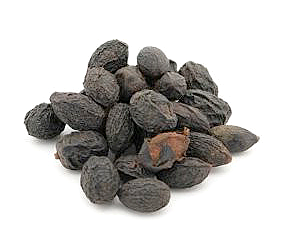 Also known as Serenoa repens,
Also known as Serenoa repens, 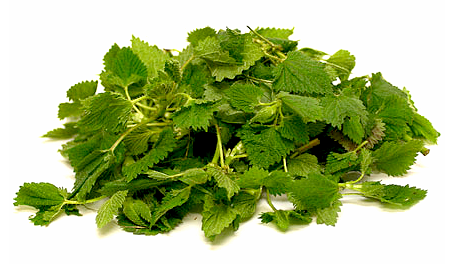 Stinging nettle or Urtica dioica also shares some bioactive phytochemicals (fatty acids and phytosterols) with saw palmetto. Therefore, it works with the same mechanisms described above.
Stinging nettle or Urtica dioica also shares some bioactive phytochemicals (fatty acids and phytosterols) with saw palmetto. Therefore, it works with the same mechanisms described above.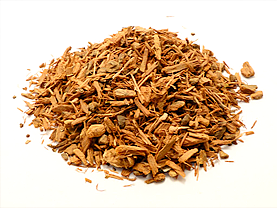 Pygeum is the herbal extract taken from the bark of Pygeum Africanum.
Pygeum is the herbal extract taken from the bark of Pygeum Africanum.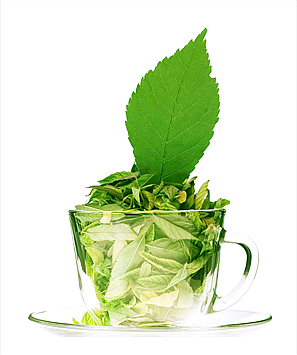 Green tea is obtained from the slightly oxidized leaves of Camellia sinensis.
Green tea is obtained from the slightly oxidized leaves of Camellia sinensis.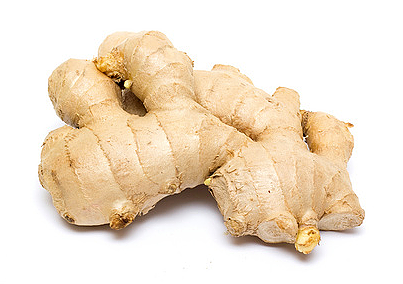 The antioxidant effect of ginger helps prevent oxidative damage to prostate tissues while the anti-inflammatory effect prevents the enlargement of the organ caused by local inflammation.
The antioxidant effect of ginger helps prevent oxidative damage to prostate tissues while the anti-inflammatory effect prevents the enlargement of the organ caused by local inflammation.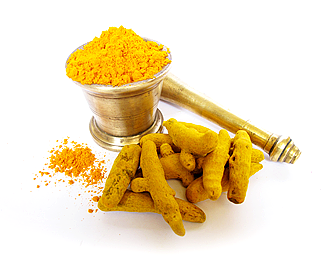 Curcumin is a colorful compound obtained from turmeric, a plant related to ginger.
Curcumin is a colorful compound obtained from turmeric, a plant related to ginger.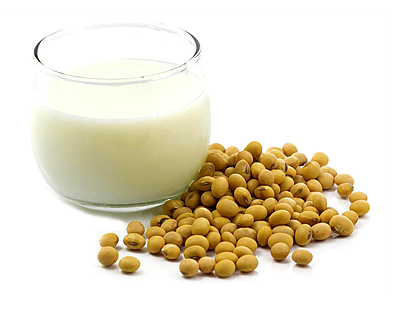 Isoflavones are phytoestrogens. They are found in high concentrations in soy but other plants such as
Isoflavones are phytoestrogens. They are found in high concentrations in soy but other plants such as 
 The medicinal benefits of resveratrol include its cardioprotective, anti-diabetic and anti-cancer properties. Although human research into the anti-cancer benefits of resveratrol is still underway, there is sufficient evidence to suggest that the compound can indeed reduce the risks of certain cancers.
The medicinal benefits of resveratrol include its cardioprotective, anti-diabetic and anti-cancer properties. Although human research into the anti-cancer benefits of resveratrol is still underway, there is sufficient evidence to suggest that the compound can indeed reduce the risks of certain cancers.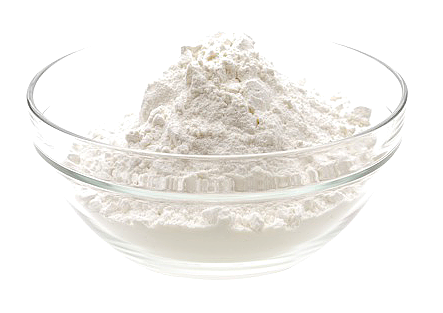 Simple baking soda, a bicarbonate salt, can also be used to treat prostate cancer. While the use of this home remedy is not recommended by oncologists, there have been cases where it was used successfully to treat cancers, even prostate cancer.
Simple baking soda, a bicarbonate salt, can also be used to treat prostate cancer. While the use of this home remedy is not recommended by oncologists, there have been cases where it was used successfully to treat cancers, even prostate cancer.